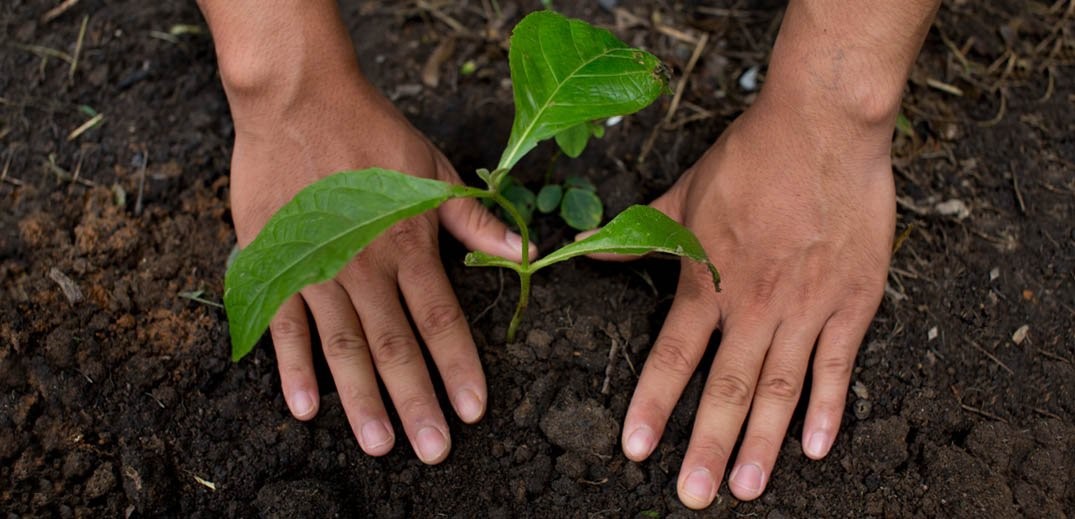At subcommittee hearing, farmers and experts highlight need for regenerative agriculture amid worsening climate crisis

Published: August 2, 2022
Category: The Non-GMO Blog, Regenerative Agriculture
In July, U.S. Congressman Ro Khanna, Chair of the Subcommittee on Environment, held a hearing to examine regenerative agriculture, the role it can play in preventing the worst of the climate crisis while protecting food supply, and the urgent need to reform federal policies that unjustly favor corporate agribusiness, often at the expense of family farmers.
“Climate change poses serious threats to food security,” said Chairman Khanna. “With regenerative agriculture, farmers will be paid to be a key part of the solution to the climate crisis. Regenerative practices can lower carbon emissions, provide environmental benefits like clean water, and rebuild farming communities and economies. No one knows what’s best for the land better than the farmers who work on it day in and day out.”
The Subcommittee heard testimony from Bonnie Haugen, a dairy farmer from Filmore County, Minnesota; Doug Doughty, a grain farmer and cattle producer from Livingston, Missouri; Kara Boyd, President, Association of American Indian Farmers; and Dr. Rachel E. Schattman, Assistant Professor of Sustainable Agriculture, University of Maine.
Members and witnesses discussed the threat climate change poses to food security and how regenerative agricultural practices can help reduce the desertification of farmland and prevent the worst effects of the climate crisis.
- In her opening statement, Ms. Boyd explained: “We need science, technology, indigenous wisdom, and holistic thinking working together to move us toward regeneration. Building back soil health is the most cost-effective federal investment we can make at this time. From risk-mitigation, to farmer prosperity, to human health, to carbon sequestration, it is a win-win for all.”
- In response to a question from Rep. Ocasio-Cortez, Dr. Schattman explained desertification is a threat in “areas where rainfall is expected to become much more variable and more intense, and farming systems that leave soil exposed, such as cropping systems with a lot of tillage or a lot of mechanical cultivation and in arid regions as well.”
- In her opening statement, Ms. Haugen testified about how her regenerative dairy farm combats climate change, explaining that “on our 270-acre farm, we use rotational grazing, and our cows graze on pasture with forage that includes grasses, clover, and more. These forages sequester carbon and keep soil from eroding by wind or water.”
Members and witnesses highlighted the unfair market power that corporate agribusinesses hold and how it limits the freedom of small- and medium-sized farmers to adopt regenerative agriculture practices.
- In his testimony, Mr. Doughty said: “We raise cattle on our farm, I grew up raising hogs and was a pork producer in my early years of farming, so I understand what is involved in raising animals for food. But what concentrated animal feeding operations do is different than what we do on our farm. Buildings the size of two or three football fields concentrate thousands or tens of thousands of animals and create massive quantities of manure; some similar to large cities that is challenging to be handled responsibly with a limited land base, putting surface and ground water at risk of contamination.”
- In response to a question from Vice Chair Tlaib, Ms. Haugen, an independent Minnesota dairy farmer, said of trying to compete with the large multinational agribusinesses that have become even more consolidated in recent years: “It’s like David and Goliath.” She continued, “We don’t like the paperwork and extra regulation but it’s necessary to keep it fair, to give us a fair chance.”
Members and witnesses discussed why Congress must amend federal policies that unjustly protect corporate agribusiness, often at the expense of family farmers, and fully fund farm conservation programs.
- Ms. Boyd testified: “Too many farmers and ranchers are turned away when they seek Environmental Quality Incentives Program (EQIP) and Conservation Stewardship Program (CSP) assistance due to limited funding or burdensome restrictions. At the same time, significant amounts of CSP and EQIP funding is being spent on practices that do not rebuild soil health or ecological function, reduce emissions or sequester carbon. Consistently, EQIP funds are used to support concentrated animal feeding operations leading to detrimental environmental impacts while also effectively preventing small-scale and pasture-based livestock producers from accessing funds.”
- In response to a question from Rep. Ocasio-Cortez, Mr. Doughty said the output on his farm “continues to increase in production” because of the regenerative practices he employs. “Let’s fund resourceful farming and food initiatives that contribute to the public good,” he added.
- In response to a question from Rep. Khanna, Dr. Schattman noted that paying farmers for implementing good stewardship would not be the only way to incentivize regenerative practices, but argued that it would represent “a powerful tool” of the federal government to do so.
Organic & Non-GMO Insights August 2022




